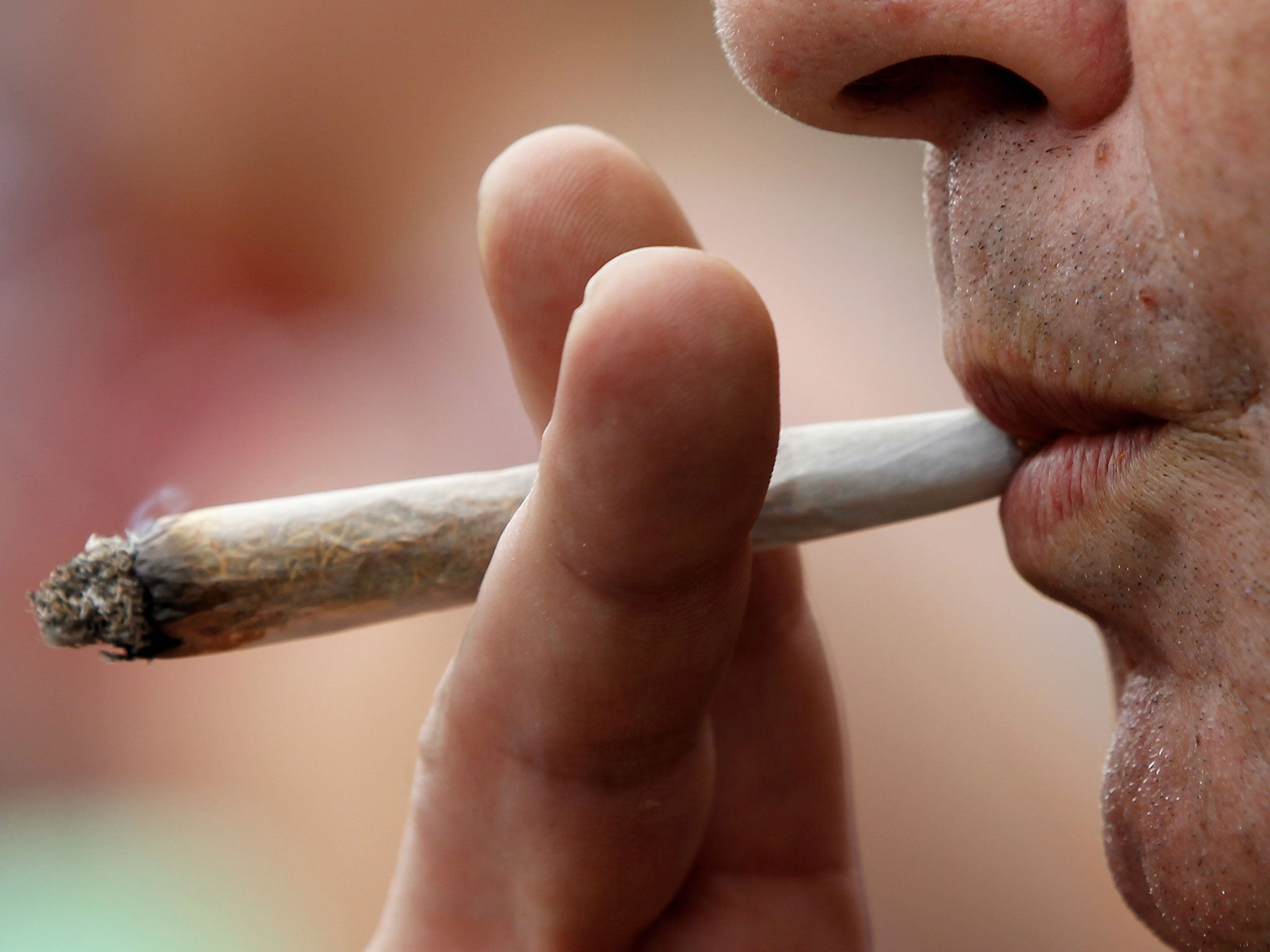Marijuana users may be more likely to develop diabetes, research finds
Adults who used marijuana were 65% more likely to have poor sugar control

Your support helps us to tell the story
From reproductive rights to climate change to Big Tech, The Independent is on the ground when the story is developing. Whether it's investigating the financials of Elon Musk's pro-Trump PAC or producing our latest documentary, 'The A Word', which shines a light on the American women fighting for reproductive rights, we know how important it is to parse out the facts from the messaging.
At such a critical moment in US history, we need reporters on the ground. Your donation allows us to keep sending journalists to speak to both sides of the story.
The Independent is trusted by Americans across the entire political spectrum. And unlike many other quality news outlets, we choose not to lock Americans out of our reporting and analysis with paywalls. We believe quality journalism should be available to everyone, paid for by those who can afford it.
Your support makes all the difference.People who use marijuana may be more likely to develop prediabetes than those who have never smoked it, according to new research.
A sample of more than 3,000 people in America found that adults who currently used marijuana were 65 per cent more likely to have poor sugar control which can lead to type 2 diabetes. Those who no longer smoked the drug but had used it 100 times or more in their lifetime had a 49 per cent greater chance of developing the condition.
The link was not affected by BMI and waist circumference, the paper published in Diabetologia (the journal of the European Association for the Study of Diabetes) found.
The authors, led by the University of Minnesota School of Public Health’s Mike Bancks, said: “Marijuana use, by status or lifetime frequency, was not associated with incidence or presence of diabetes after adjustment for potential confounding factors.
“However, marijuana use was associated with the development and prevalence of prediabetes after adjustment. Specifically, occurrence of prediabetes in middle adulthood was significantly elevated for individuals who reported using marijuana in excess of 100 times by young adulthood.
“These results contrast with those previously reported on marijuana use and metabolic health. Future studies should look to objectively measure mode and quantity of marijuana use in relation to prospective metabolic health.”
Despite showing a heightened incidence of prediabetes, the study failed to establish a direct connection to type 2 diabetes itself.
The authors said: “It is unclear how marijuana use could place an individual at increased risk for prediabetes yet not diabetes.”
The data was taken from a group of more than 3,000 Americans now in their 30th year of a study called the Coronary Artery Risk Development in Young Adults. They were 18-30 when they were recruited in 1985 and 1986. The percentage who self-reported current use of marijuana declined over from 28 per cent in 1985-1986 to 12 per cent in 2010-2011.
The paper suggests the lack of a link to type 2 diabetes could be because individuals excluded from the study had higher levels of marijuana use and greater potential for development of diabetes – or that marijuana may have a greater effect on blood-sugar control in the prediabetic range than for full, type 2 diabetes.
Join our commenting forum
Join thought-provoking conversations, follow other Independent readers and see their replies
Comments